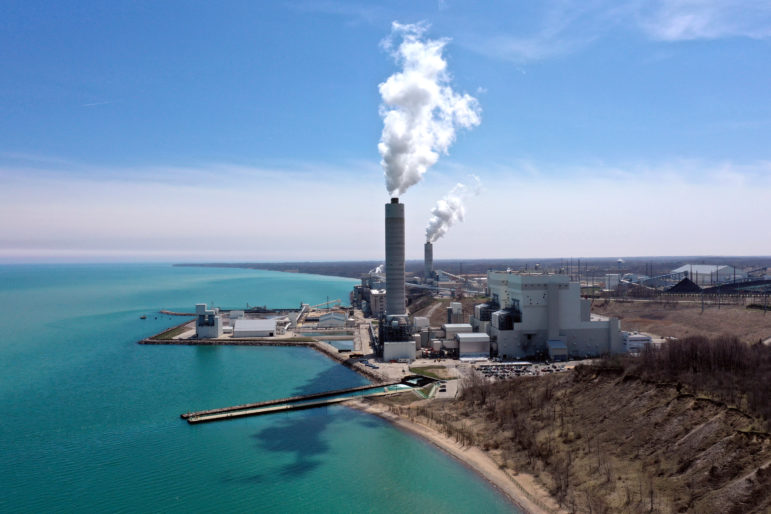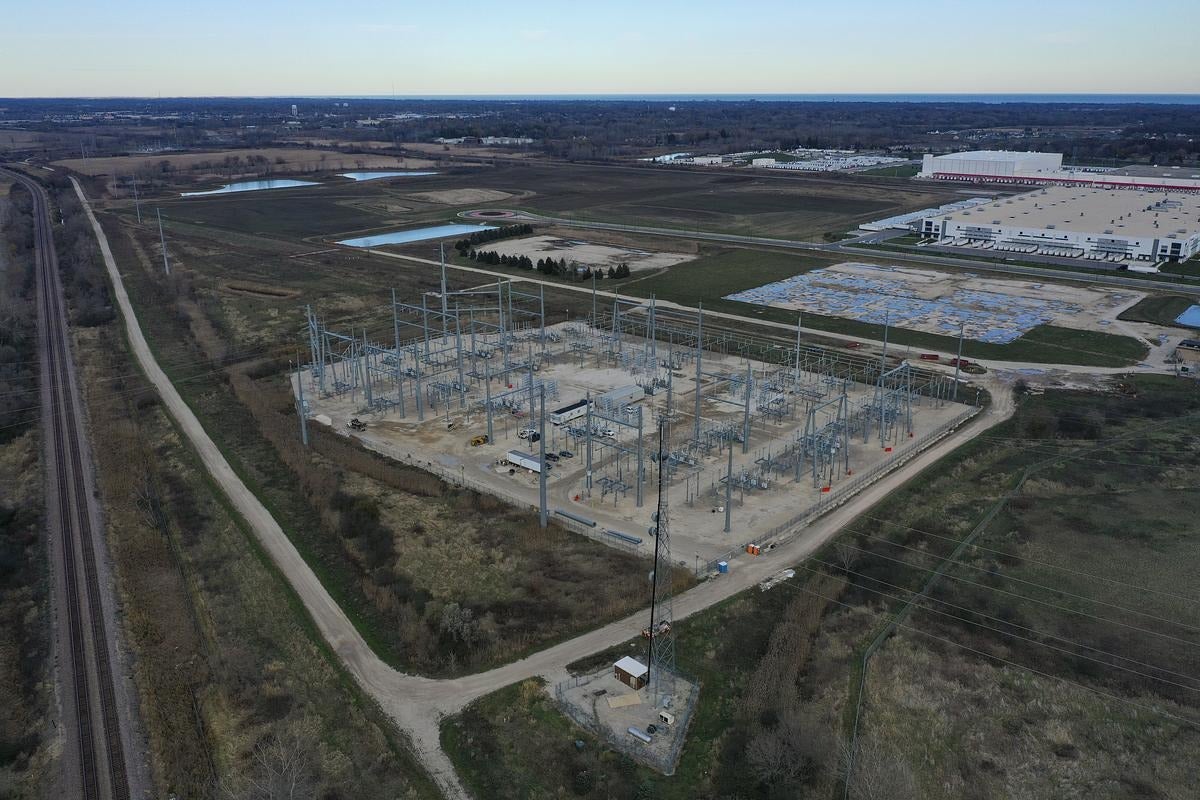The parent company of We Energies and Wisconsin Public Service announced in an earnings call Tuesday it plans to eliminate coal as an energy source by the end of 2032, three years earlier than it had originally planned.
Officials said coal will be used only as a backup fuel source beginning in 2030.
Along with shifting its projected exit from coal, WEC Energy Group executives said the utility plans to increase investments in renewable energy by $1.4 billion over the next five years as part of its plan to reduce carbon dioxide, or CO2, emissions by 80 percent by 2030.
News with a little more humanity
WPR’s “Wisconsin Today” newsletter keeps you connected to the state you love without feeling overwhelmed. No paywall. No agenda. No corporate filter.
“We’ll continue to make great progress in transforming our power generation fleet and reducing carbon dioxide emissions,” said Executive Chairman Gale Klappa. “In the plan, for example, we’re making a significant commitment to new solar, wind and battery storage, as well as modern, efficient natural gas generation.”
The announcement comes after the company indicated in August it didn’t rule out delays to coal plant retirements due to new capacity requirements from the Midwest grid operator and after an October report from the Sierra Club said most utilities were dragging their feet on the shift to clean energy.
The new target for exiting coal as an energy source company-wide does not change retirement dates for coal units at the South Oak Creek plant near Milwaukee. Two coal-fired units are slated to come offline next year and the final two by late 2025. Meanwhile, Elm Road Generating Station will be converted to a natural gas plant, officials said.
Klappa said the process of converting Elm Road from coal to natural gas has been in the making for several years.
“We’ve had extensive ongoing discussions with the (Public Service Commission of Wisconsin) commissioners,” he said. “They understand what we’re trying to achieve. They understand the importance of continuing to cost effectively reduce CO2 emissions.”
WEC Energy Group also announced a timeline for the retirement of its coal-fired units at the Weston Power Plant, near Wausau. One of the coal-fired units at the plant will be retired in 2031, and another will be converted to a natural gas plant, company officials said.
Critics said the announcement is a step in the right direction, but stressed that the utility’s plans are non-binding.
Chelsea Chandler, Climate, Energy & Air program director for Clean Wisconsin, said she was encouraged by the news, but it’s too early to applaud the utility.
“The dates are non-binding, and we’ve seen the company push back coal plant retirement dates as recently as a year ago,” she said.
Similarly, Jadine Sonoda, campaign coordinator for the Sierra Club’s Wisconsin Chapter, said she’s glad WEC Energy Group is moving up its plans to stop using coal, but she’s “less thrilled” that the company is using natural gas as an alternative.
“Gas, like coal, is a fossil fuel and makes really significant and negative impacts to our climate,” she said. “Pursuing this infrastructure is a really, really bad choice. It’s locking us into years and years of reliance on fossil fuels.”
Chandler said new power plant rules proposed by the Environmental Protection Agency may have factored into the company’s decision to speed up plans to abandon coal, as 2032 is the agency’s deadline for coal-fired plants to meet strict emission requirements.
A recent report by Clean Wisconsin found the proposal could save Wisconsinites nearly $50 million in health care costs from avoiding premature death, respiratory illness and cardiovascular disease. The report also said the plan would cut greenhouse gas emissions in Wisconsin by 2.8 million metric tons.
“It’s something that the utilities have to abide by,” Chandler said of the EPA rules. “That’s really helping people make decisions about plant closure dates more than individual utilities’ squishier plans.”
WEC Energy Group officials acknowledged the EPA rules during Tuesday’s call. Scott Lauber, the company’s president and chief executive, said the proposal would have required the company to use carbon capture technology on coal plants.
“Carbon capture would be extremely expensive, and where do you put the carbon once you capture it? So we looked at what’s efficient, long-term,” Lauber said.
Wisconsin Public Radio, © Copyright 2025, Board of Regents of the University of Wisconsin System and Wisconsin Educational Communications Board.






